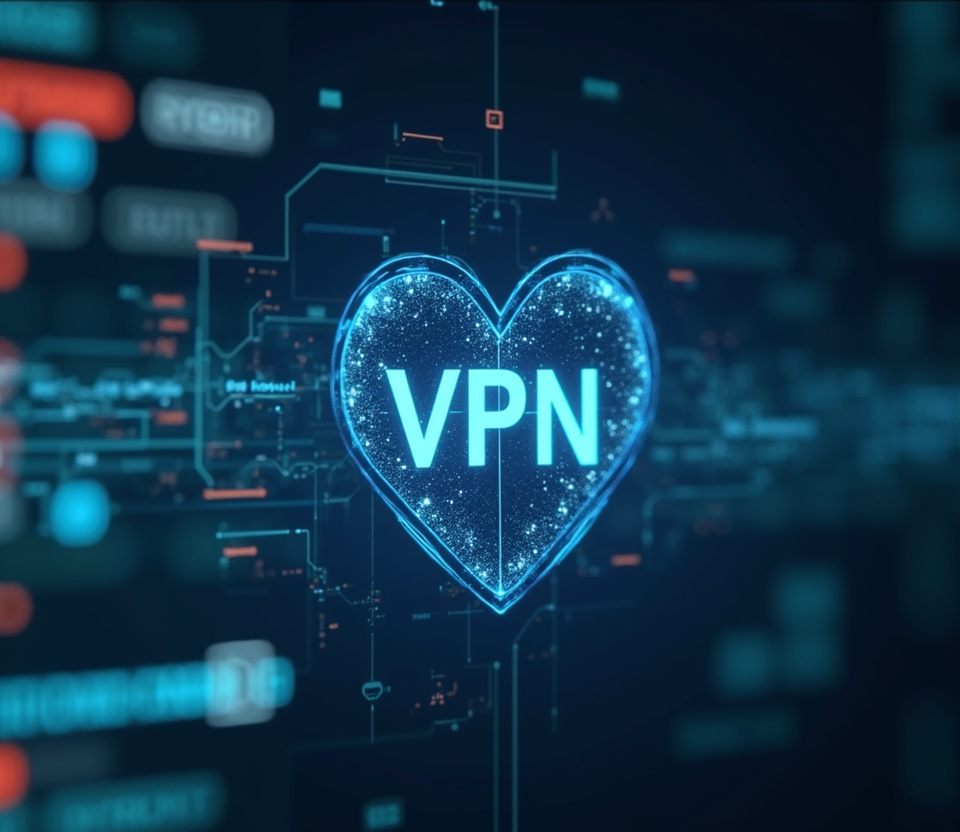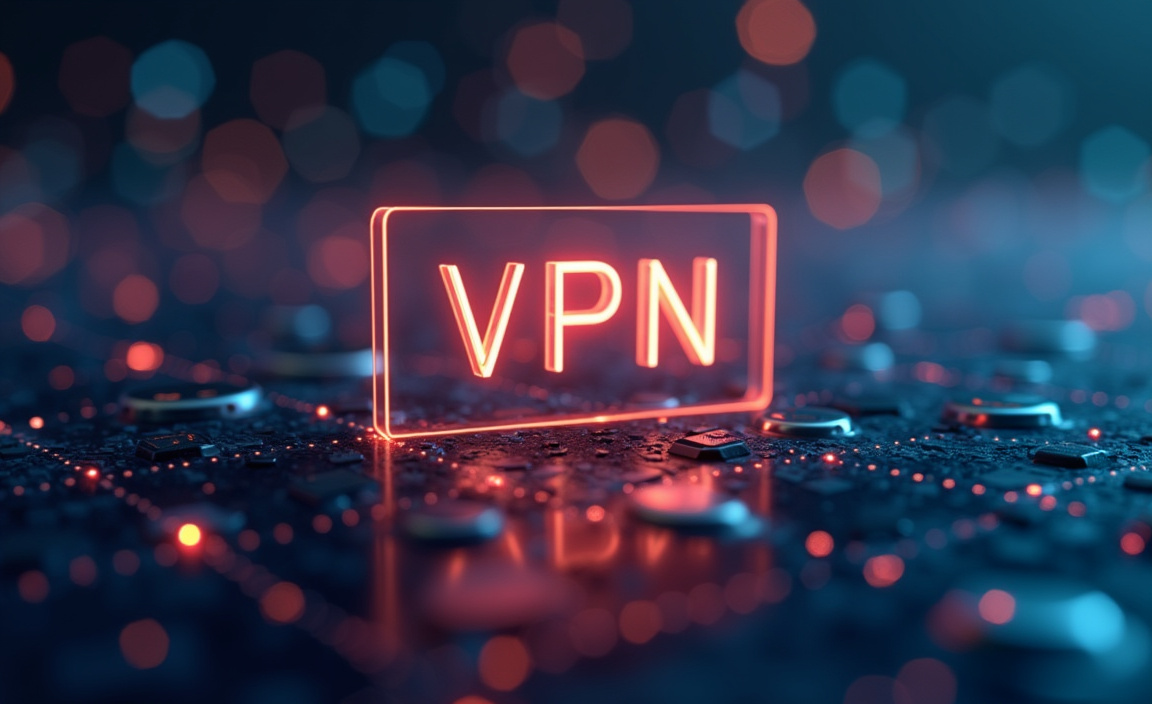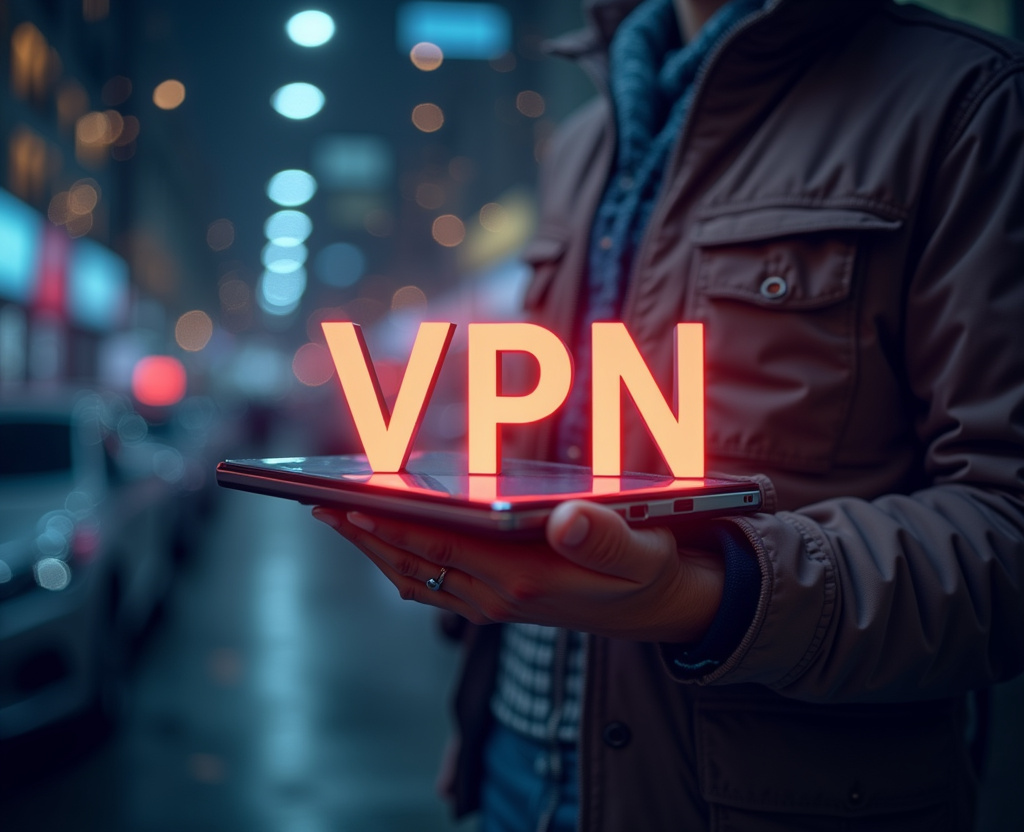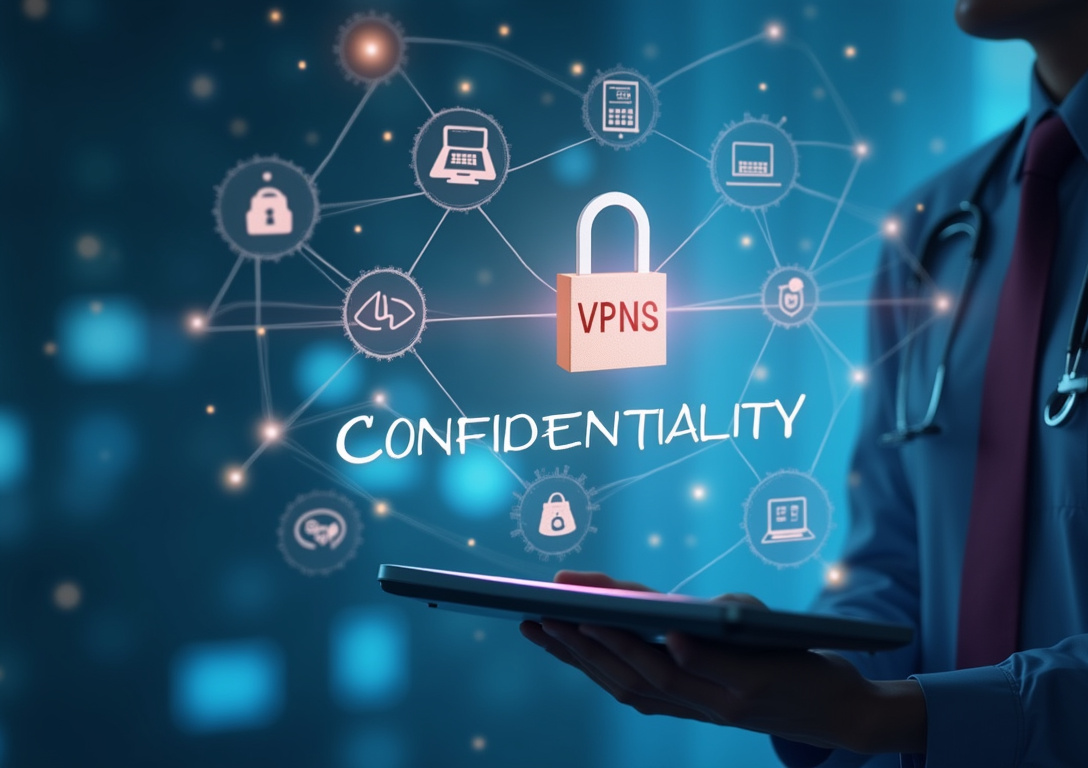Emerging VPN Technologies: What's Next?

Table of Contents
future innovations
## Emerging VPN Technologies: Navigating the Future of Online Privacy In an increasingly interconnected world, where data breaches and privacy infringements are becoming commonplace, the demand for secure and reliable Virtual Private Networks (VPNs) is experiencing unprecedented growth. While traditional VPNs have long served as essential tools for safeguarding online activity, the digital landscape is rapidly evolving, demanding more sophisticated and adaptable solutions. This article delves into the exciting realm of emerging VPN technologies, exploring the that are poised to revolutionize online security and privacy.
We will analyze key pushing the boundaries of what's possible, dissect the underlying driving these developments, and examine the that will shape the future of VPNs. Staying informed about these is crucial for both end-users seeking enhanced protection and businesses striving to maintain a competitive edge in the digital age. Traditional VPNs operate by creating an encrypted tunnel between your device and a remote server, masking your IP address and encrypting your data to prevent eavesdropping.
However, limitations such as centralized architectures, potential vulnerabilities to advanced surveillance techniques, and reliance on trust in the VPN provider present the need for more robust and sophisticated approaches. The future of VPN technology lies in addressing these limitations and embracing decentralized, privacy-centric designs. As technology continues its relentless march forward, the methods used to compromise online security become increasingly intricate.
Traditional VPNs, while still valuable, are facing challenges from sophisticated surveillance technologies, advanced data analysis techniques, and the ever-present threat of vulnerabilities within centralized systems. This necessitates a constant evolution of VPN technologies to stay one step ahead of potential threats, ensuring that users can maintain true anonymity, secure their data, and bypass censorship effectively. Quantum computing, for instance, looms on the horizon as a potentially devastating force against current encryption standards.
The immense processing power of quantum computers could render many existing encryption algorithms obsolete, making previously secure data vulnerable to decryption. Therefore, the landscape is heavily focused on developing and implementing quantum-resistant encryption methods, ensuring that VPNs remain secure even in a post-quantum world. This proactive approach to security is crucial for long-term data protection and maintaining user trust.
Moreover, with the increasing sophistication of tracking technologies, VPNs need to go beyond simply masking IP addresses. Sophisticated techniques like browser fingerprinting and deep packet inspection can still be used to identify and track users even when they are connected to a VPN. Therefore, in VPN technology must include advanced techniques such as traffic obfuscation and decoy routing.
Traffic obfuscation disguises VPN traffic as regular internet traffic, making it more difficult for censors and surveillance systems to detect its use. Decoy routing, on the other hand, involves routing traffic through multiple intermediary servers to further obscure the origin and destination of the data. These techniques add layers of complexity to the tracking process, making it significantly more difficult for third parties to monitor user activity.
Furthermore, the integration of artificial intelligence (AI) and machine learning (ML) holds immense promise for enhancing VPN security and performance. This is where are truly taking shape. AI and ML can be used to detect and mitigate malicious traffic in real-time, identifying and blocking potential threats before they can reach the user.
They can also be used to optimize server selection based on network conditions, ensuring that users are always connected to the fastest and most reliable server. Furthermore, AI-powered VPNs can personalize security settings based on individual user behavior, providing customized protection tailored to specific needs and risk profiles. These advancements are not merely incremental improvements but represent a fundamental shift towards a more dynamic and responsive approach to online security and privacy.
The discussion about also fuels the development of solutions. As governments and corporations increasingly seek to monitor and control online activity, the role of VPNs in safeguarding digital freedom becomes ever more critical. Understanding these emerging technologies is key to empowering individuals and organizations to protect their privacy and navigate the digital world with confidence.
This is not simply about hiding online activity; it is about protecting fundamental rights and freedoms in an increasingly digital world. The future of VPN technology is not just about security; it is about empowering individuals and organizations to control their own data and protect their privacy in a responsible and ethical manner. Furthermore, must address the challenge of user experience.
Many traditional VPNs are complex and difficult to use, requiring technical expertise to configure and maintain.
emerging VPN tech
One of the most significant trends is the move towards decentralized VPN (dVPN) architectures. Traditional VPNs rely on centralized servers, creating potential single points of failure and vulnerability. dVPNs, on the other hand, leverage blockchain technology to create a distributed network of VPN nodes operated by individual users.
This decentralized approach offers several advantages, including increased security, censorship resistance, and transparency. By distributing the VPN infrastructure across a network of independent nodes, dVPNs eliminate the risk of a single entity controlling user data or censoring access to information. The use of blockchain technology also ensures that all transactions and node operations are transparent and auditable, further enhancing trust and security.
Furthermore, dVPNs can be designed to incentivize node operators through cryptocurrency rewards, creating a self-sustaining ecosystem that encourages participation and promotes network growth. This model empowers users to become active participants in protecting their own privacy and contributing to a more secure and decentralized internet. The inherent vulnerabilities of centralized systems have become increasingly apparent in recent years, with several high-profile data breaches and privacy scandals involving VPN providers.
These incidents have highlighted the importance of decentralization as a key security principle. By distributing the risk across a network of independent nodes, dVPNs reduce the potential impact of any single point of failure. Even if one node is compromised, the rest of the network remains secure and operational.
This resilience is particularly important in environments where censorship and surveillance are prevalent. dVPNs can provide a more reliable and censorship-resistant means of accessing information in countries with strict internet controls. The transparent and auditable nature of blockchain technology also provides users with greater confidence in the integrity of the VPN service.
They can verify that their data is being routed through the network as intended and that no unauthorized access or manipulation is occurring. Another key area of focuses on enhancing encryption and authentication protocols. While existing VPN protocols like OpenVPN and WireGuard offer robust security, they are not immune to vulnerabilities.
Researchers are constantly working on developing and refining these protocols to address emerging threats and improve performance. For example, post-quantum cryptography is gaining increasing attention as a means to protect against future attacks from quantum computers. These algorithms are designed to be resistant to both classical and quantum computing attacks, ensuring long-term security for VPN users.
Furthermore, advancements in authentication methods, such as multi-factor authentication and biometric authentication, can add an extra layer of security to prevent unauthorized access to VPN accounts. These enhanced security measures are crucial for protecting sensitive data from increasingly sophisticated cyberattacks. The increasing sophistication of cyberattacks necessitates a continuous improvement in encryption and authentication technologies.
As attackers develop new methods for breaking encryption algorithms and stealing credentials, VPN providers must stay ahead of the curve by adopting the latest security standards. This includes not only implementing robust encryption protocols but also regularly updating their systems to patch vulnerabilities and address emerging threats. The landscape also includes a growing emphasis on transparency and accountability among VPN providers.
Users are increasingly demanding greater clarity about how their data is handled and what security measures are in place. This has led to the rise of VPN providers that undergo independent security audits and publish transparency reports detailing their data handling practices. These measures help users make informed decisions about which VPN provider to trust and hold them accountable for their promises.
Transparency reports typically include information about government requests for user data, legal challenges to censorship, and security incidents. By publishing this information, VPN providers can demonstrate their commitment to protecting user privacy and building trust with their customers. Independent security audits provide an objective assessment of the VPN provider's security infrastructure and practices.
These audits can identify vulnerabilities and weaknesses that need to be addressed to improve the overall security of the service. In addition to technical advancements, regulatory changes and legal challenges are also shaping the future of VPN technology. Governments around the world are grappling with the issue of online privacy and are enacting laws that impact the use of VPNs.
Staying abreast of these legal developments is crucial for both VPN providers and users to navigate the legal landscape and ensure compliance. Some countries have banned the use of VPNs altogether, while others have imposed strict regulations on their operation. VPN providers must adapt to these changing legal landscapes and ensure that their services comply with all applicable laws and regulations.
This may involve implementing geo-restrictions, modifying data handling practices, or even withdrawing from certain markets. The constant evolution of the web makes this space something that requires constant research and adaptation. VPNs are not static tools; they are dynamic systems that must be continuously updated and improved to meet the evolving challenges of the online world.
next-gen solutions
The integration of artificial intelligence (AI) and machine learning (ML) represents a paradigm shift in for VPN technology. These technologies offer the potential to automate security tasks, optimize network performance, and personalize the user experience. AI-powered VPNs can analyze network traffic in real-time to detect and mitigate malicious activity, such as DDoS attacks and malware intrusions.
They can also identify and block phishing websites and other online threats, providing an extra layer of protection against cyberattacks. Furthermore, AI can be used to optimize server selection based on network conditions, such as latency, bandwidth, and location. This ensures that users are always connected to the fastest and most reliable VPN server, resulting in a seamless and optimized browsing experience.
Machine learning algorithms can also personalize security settings based on individual user behavior. By analyzing user data and identifying patterns, AI can automatically adjust security settings to provide the optimal level of protection for each user. This personalized approach eliminates the need for users to manually configure complex security settings, making VPNs more accessible and user-friendly.
The specific applications of AI and ML in VPN technology are vast and continuously expanding. For instance, AI can be trained to identify and block sophisticated tracking techniques, such as browser fingerprinting and cross-site scripting. It can also be used to detect and prevent data leaks by monitoring network traffic for sensitive information, such as credit card numbers and passwords.
Moreover, AI can be used to improve the performance of VPNs in resource-constrained environments, such as mobile devices. By optimizing network protocols and data compression techniques, AI can reduce bandwidth consumption and improve battery life. The potential benefits of AI and ML for VPN technology are truly transformative.
These technologies can significantly enhance security, improve performance, and personalize the user experience, making VPNs more effective and accessible for a wider range of users. However, the integration of AI and ML also raises new challenges and concerns. One potential concern is the issue of data privacy.
AI and ML algorithms require large amounts of data to train and operate effectively. This data may include user browsing history, network traffic patterns, and other sensitive information. It is crucial that VPN providers implement robust privacy safeguards to protect user data from unauthorized access and misuse.
This includes anonymizing data, encrypting data, and implementing access controls. Another concern is the potential for bias in AI and ML algorithms. If the data used to train these algorithms is biased, the algorithms may produce biased results.
This could lead to unfair or discriminatory outcomes for certain users. It is important that VPN providers carefully evaluate the data used to train their AI and ML algorithms to ensure that it is representative and unbiased. Despite these challenges, the potential benefits of AI and ML for VPN technology outweigh the risks.
By addressing the privacy and bias concerns, VPN providers can harness the power of AI and ML to create more secure, efficient, and user-friendly VPN services. The in this area will likely focus on developing more sophisticated AI algorithms that can adapt to evolving threats and personalize the user experience even further. The ultimate goal is to create VPNs that are not only secure and reliable but also intelligent and proactive, providing users with the best possible protection against online threats.
This proactive approach to securing networks is important for everyone that is constantly connected to the internet. Furthermore, is increasingly focused on integrating VPN functionality directly into other security tools and platforms. This includes firewalls, antivirus software, and web browsers.
By integrating VPN functionality directly into these tools, users can benefit from enhanced security and privacy without having to install and configure separate VPN clients. This integrated approach also makes it easier for organizations to manage and enforce VPN policies across their networks. For example, a firewall with integrated VPN functionality can automatically establish a VPN connection whenever a user accesses a sensitive resource, such as a financial database or a customer relationship management (CRM) system.
This ensures that all traffic to and from these resources is encrypted and secure. This trend towards integration is driven by the increasing complexity of the online threat landscape. As attackers develop new methods for compromising systems and stealing data.
privacy trends
Beyond the specific technological advancements, several overarching are shaping the future of VPNs. One major trend is the growing awareness among internet users about the importance of online privacy. This awareness is being driven by a number of factors, including high-profile data breaches, government surveillance programs, and the increasing invasiveness of online advertising.
As more people become aware of these threats, they are seeking out tools and technologies that can help them protect their privacy online. VPNs are a natural choice for many users because they provide a simple and effective way to encrypt their internet traffic and mask their IP address. This makes it more difficult for third parties to track their online activity and collect their personal data.
The rise of privacy-focused browsers, search engines, and messaging apps is further evidence of this growing trend. Users are increasingly willing to switch to alternative platforms that prioritize privacy over convenience or features. Another key trend is the increasing demand for censorship-resistant VPNs.
In many countries around the world, governments are actively censoring the internet, blocking access to news websites, social media platforms, and other online resources. VPNs can be used to bypass these censorship blocks, allowing users to access the information they need to stay informed and participate in public discourse. However, some governments are also actively trying to block VPN traffic.
This has led to the development of more sophisticated VPN technologies that can evade censorship filters. These technologies include traffic obfuscation, decoy routing, and steganography. The ongoing battle between censorship and circumvention is driving innovation in the VPN industry and ensuring that users have access to tools that can help them exercise their right to freedom of expression.
The future of VPN technology will be heavily influenced by the evolving legal and regulatory landscape. Governments around the world are grappling with the issue of online privacy and security, and they are enacting laws that impact the use of VPNs. For example, some countries have introduced data localization laws that require companies to store user data within their borders.
This can make it more difficult for VPN providers to operate in these countries because they may be required to store user data in a location that is not under their control. Other countries have introduced laws that require VPN providers to register with the government or to block access to certain websites. These laws can significantly impact the privacy and security of VPN users.
VPN providers must carefully navigate this complex legal landscape to ensure that their services comply with all applicable laws and regulations. They must also be transparent with their users about the legal risks associated with using VPNs in certain countries. The concept of goes beyond just the technology itself.
The legal and ethical considerations surrounding VPN usage are becoming increasingly important. Users need to be aware of the laws in their country and the potential consequences of using a VPN to bypass censorship or access illegal content. Furthermore, VPN providers need to be transparent about their data handling practices and their compliance with legal requirements.
This includes providing clear and concise privacy policies and being responsive to user inquiries. Building trust with users is essential for the long-term success of the VPN industry. Another important trend is the increasing focus on user experience.
Many traditional VPNs are complex and difficult to use, requiring technical expertise to configure and maintain. This makes them inaccessible to many users who are not tech-savvy. are focusing on making VPNs more user-friendly by simplifying the setup process, providing intuitive interfaces, and offering helpful customer support.
Some VPN providers are even developing AI-powered VPNs that can automatically configure themselves and optimize their performance based on user behavior. The goal is to make VPNs as easy to use as possible so that anyone can protect their privacy online. The ultimate success of VPN technology will depend on its ability to empower users to take control of their online privacy and security.
This requires not only developing innovative technologies but also educating users about the importance of online privacy and providing them with the tools and knowledge they need to protect themselves.
emerging VPN tech
In conclusion, the landscape is dynamic and rapidly evolving, driven by a combination of technological advancements, changing privacy trends, and evolving legal and regulatory requirements. From decentralized VPNs and quantum-resistant encryption to AI-powered security and integrated VPN solutions, the in this space promise to revolutionize online security and privacy. As internet users become increasingly aware of the importance of protecting their personal data and exercising their right to freedom of expression, the demand for secure and reliable VPNs will continue to grow.
VPN providers that can adapt to these changing needs and deliver innovative solutions will be well-positioned for success in the years to come. Staying informed about these developments is crucial for both end users seeking enhanced protection and businesses striving to maintain a competitive edge in the digital age. The key to navigating this complex landscape is to understand the underlying driving these advancements and to choose VPN solutions that prioritize security, transparency, and user experience.
The move towards decentralized VPNs represents a fundamental shift in the architecture of VPN services, offering increased security, censorship resistance, and transparency. By distributing the VPN infrastructure across a network of independent nodes, dVPNs eliminate the risk of a single entity controlling user data or censoring access to information. This decentralized approach is particularly appealing to users who are concerned about government surveillance or corporate tracking.
The development of quantum-resistant encryption algorithms is another critical area of innovation. As quantum computers become more powerful, they will pose a significant threat to existing encryption standards. The implementation of post-quantum cryptography is essential for ensuring the long-term security of VPNs and protecting user data from future attacks.
The integration of artificial intelligence and machine learning holds immense promise for enhancing VPN security and performance. AI-powered VPNs can detect and mitigate malicious traffic in real-time, optimize server selection based on network conditions, and personalize security settings based on individual user behavior. These technologies can significantly improve the effectiveness and efficiency of VPN services.
The increasing focus on user experience is also driving innovation in the VPN industry. are focusing on making VPNs more user-friendly by simplifying the setup process, providing intuitive interfaces, and offering helpful customer support. The goal is to make VPNs accessible to a wider range of users, regardless of their technical expertise.
As the legal and regulatory landscape evolves, VPN providers must adapt to changing requirements and ensure that their services comply with all applicable laws. This includes implementing data localization measures, providing clear and concise privacy policies, and being transparent with users about the legal risks associated with using VPNs in certain countries. Ultimately, the success of VPN technology will depend on its ability to empower users to take control of their online privacy and security.
This requires not only developing innovative technologies but also educating users about the importance of online privacy and providing them with the tools and knowledge they need to protect themselves. The continued evolution of will be shaped by the ongoing interplay between technological innovation, evolving privacy concerns, and the ever-changing legal and regulatory landscape. By staying informed about these trends and by choosing VPN solutions that prioritize security, transparency, and user experience, individuals and organizations can protect their online privacy and navigate the digital world with confidence.
The future of VPN technology is bright, and it promises to play an increasingly important role in safeguarding digital freedom and protecting personal data in an increasingly interconnected world. The discussion will always be on the table with VPNs as long as there is need to secure data. This means that the future will always require solutions for privacy and security, the focus should also be put on user experience, which a lot of times gets forgotten.
Stay Updated
Get the latest VPN news, tips, and exclusive deals to your inbox.




